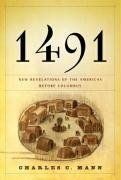
Reviews
Cody Degen@codydegen
Andrew John Kinney@numidica
Yasser Yahia@yasseryahia
Jeni Enjaian@jenienjaian
Mikayla Nickell@mikijo
yasi@middleschoolbf
Kemie G@kemie
Will Vunderink@willvunderink
Maurice FitzGerald@soraxtm
Meagan Fischer @mstypharatfinklatifolia
Ed Macovaz@edmacovaz
Jamie McHale@jamiemchale
Michael Cowell@chaosweeper
Lara Engle@bzzlarabzz
Juliana@soundly
Jerry Eakes@jeakes
Morgan Holland@morgz
Connie@cludecoeur
Jonathan Grunert@jgrunert
Jen@fierycracker81
Noha Abdelaziz@nouhashawqi
Mechelle@mechelle
Kaitlin Caruso@kdaycaruso
Levi Nelson@levinelson
Highlights
Mikayla Nickell@mikijo
Mikayla Nickell@mikijo
Page 240
Mikayla Nickell@mikijo